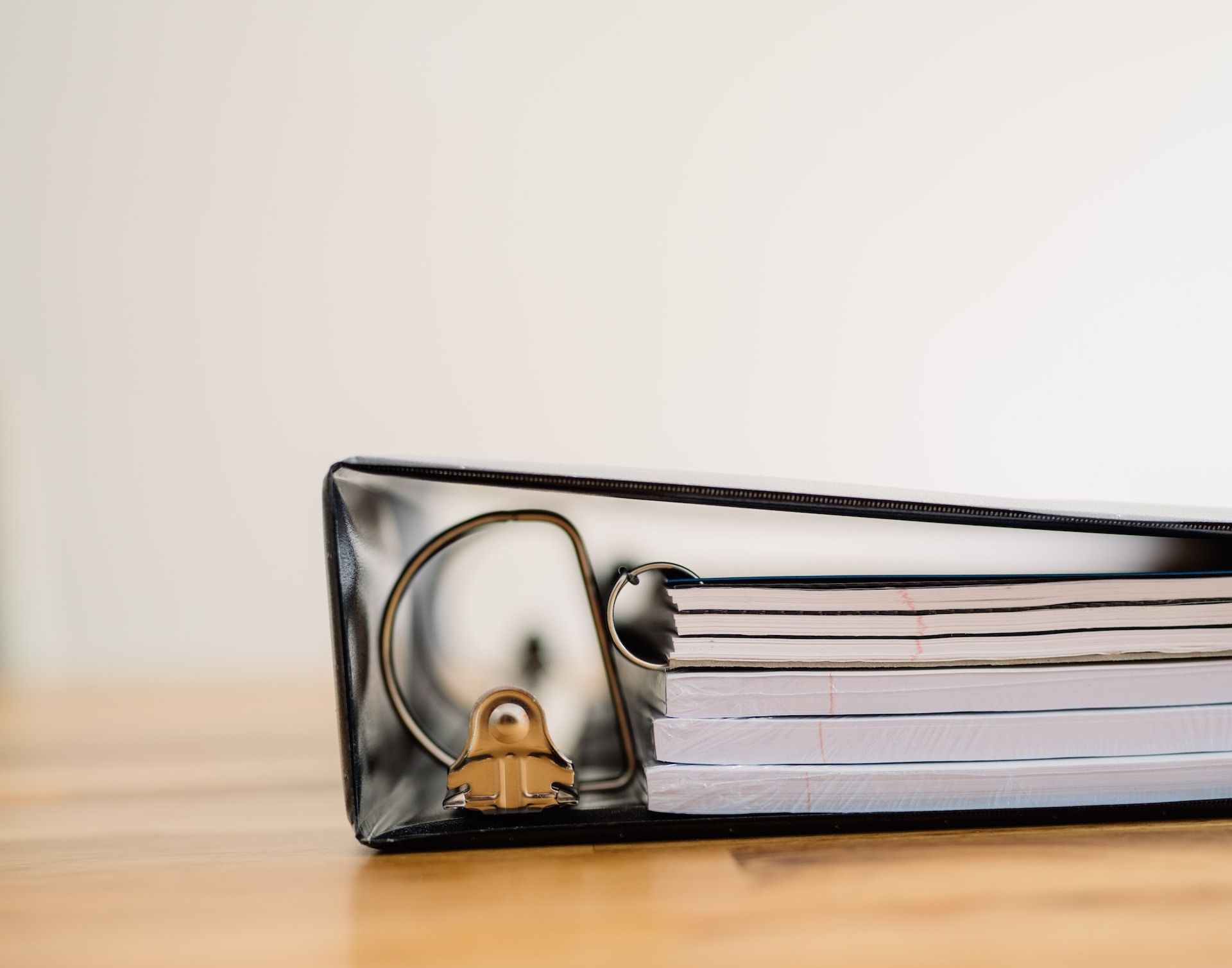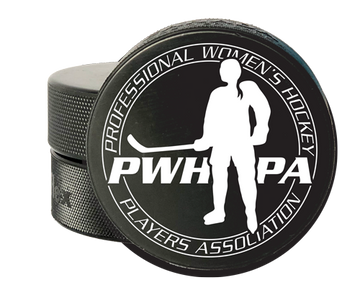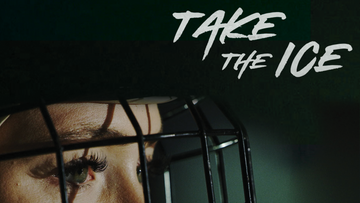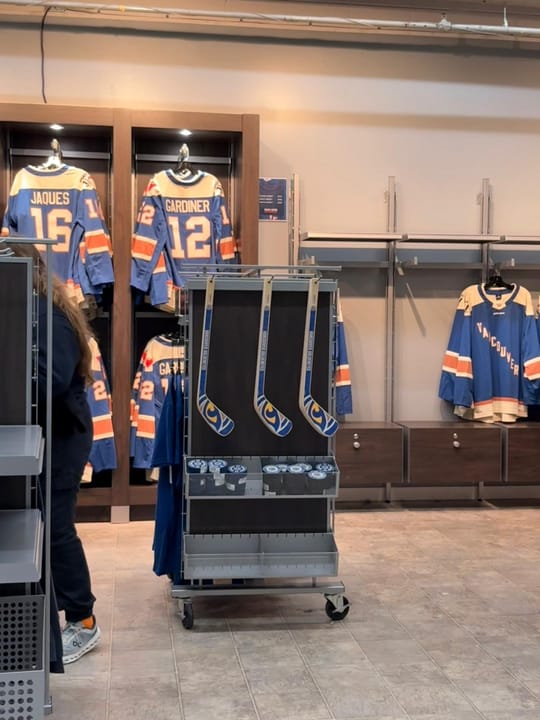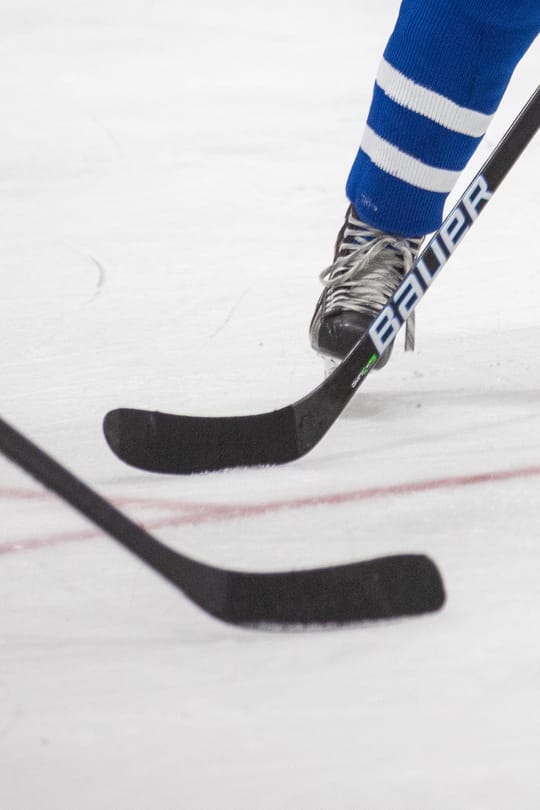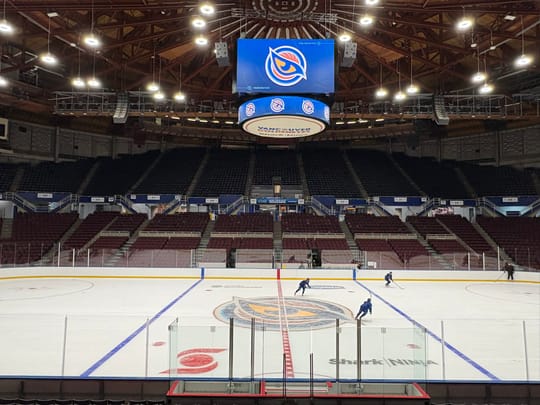The Victory Press has acquired a copy of the collective bargaining agreement between the Professional Women's Hockey League and the Professional Women's Hockey League Players Association, which was unanimously ratified by PWHPA athletes on July 2.
The CBA is slated to go into effect on August 1, 2023 and runs through July 31, 2031. At first glance, it's an incredibly detailed, 62-page document (which includes a sample Standard Player Agreement) and covers an array of topics, from union security to player salaries, benefits such as health & life insurance, housing and parental leave, travel, safety & working conditions.
This is by no means an exhaustive digestion of the CBA, but aims to highlight only some of the key & most interesting points. These points may not be word-for-word from the CBA, but are when practical and are intended to be easily digestible. It is expected that the full, ratified CBA will become a public document at some point in the future.
Where appropriate, we've also provided comparable from both the NWSL collective bargaining agreement (ratified 2022) and the WNBA collective bargaining agreement (ratified 2020).
A few points to highlight, for starters:
Union dues will be deducted monthly from player salaries by the PWHL, and monies shall be forwarded to the PWHLPA monthly by electronic transfer.
Nothing particularly noteworthy here, but good information to have. This is the same in the NWSL, while the WNBA checks off an initiation fee and annual dues in equal installments from each of a player's first four regular-season paychecks.
Players may designate a Player-Agent to act on their behalf, or to assist the Player in the negotiation of Salary and/or additional benefits to be included in their SPA. When the PWHLPA develops a Player-Agent certification program, the PWHLPA and PWHL will meet to discuss the terms of the program.
This tidbit was interesting to me because it indicates that the PA intends to develop a certification program for agents, which is key to making sure players are represented by legitimate agents who have their best interests in mind. The NWSL does not have an agent certification program. The WNBA requires certification as an agent from the PA and has a program in place to designate such.
The CBA also states that joining the players' union is optional, but that once a player joins, they must remain in good standing; it also states that an annual fee will be deducted from the player's paycheck equal to the current union dues if they are not a union member.
The CBA does not specify a specific procedure for re-negotiating the agreement prior to its July 31, 2031 expiration date, and the CBA will be in effect "year to year" after that date. Either party can submit 60-day written notice to terminate or modify the CBA at the end of its current or extended term.
Salaries & Expenses
- During the initial League Year only (anticipated to be 2023-24), the League will sign no fewer than six (6) players on each team to three-year SPAs of no less than $80,000 per League Year. Minimum salary, excluding incentive or performance compensation, will be $35,000, while average annual salary on each team will be $55,000. Both the minimum & average annual base salaries will increase by three percent each year. The PWHL is notably implementing a salary average instead of a salary cap, with teams being given leeway of 10% in either direction in attempting to maintain the average.
- The CBA also denotes that players will be paid bi-weekly, unless greater frequency is required by law. Paychecks will be direct deposited at any US or Canadian financial institution that accepts such.
- Performance & competition bonuses include $1,000 each for All-Star Game runners-up (12) and $1,500 each for All-Star Game champions (12). The league's Most Valuable Player will get $5,000, while the top forward, defense & goaltender will each get $4,000. The same is true for rookie of the year, as well as a winner of a community-based award. These bonuses will increase by three percent each year along with player salaries.
- The league champions will receive $63,250 to be split amongst team members. The runners-up will receive $40,250 to split. Semi-finalists will receive $23,000 per team to split among the players. This seems to indicate that four teams will make the playoffs, though there is also the option that all teams make it & only the top four remaining get bonuses.
In comparison, the 2024 minimum salary in the NWSL will be $37,856. The NWSL has competition & performance bonuses ranging from $1,000 to the Challenge Cup champion to $5,000 to the champion, as well as $5,000 for awards like rookie of the year and MVP.
The minimum salary in the WNBA in 2024 depends on the number of years of service a player has. For players who have 0-2 years of service, the minimum salary will be $64,154. For players with 3+ years of service, the minimum will be $76,535.
The WNBA also enacts maximum player salaries. For players with six of more years of service, the 2024 maximum salary will be $241,984. For all other player contracts, the maximum will be $208,219. Bonuses in the WNBA range from $1,030 per player for the all-star three point contest and skills competition non-winners to $15,450 for the MVP. Champions receive $11,356 per player.
The NWSL's CBA explicitly mentions a salary cap, with the 2023 cap set at $1,375,000. The salary cap in the WNBA in 2024 will be $1,463,200. In both the WNBA and NWSL, players are entitled to profits from the league (revenue sharing) beyond base salary. The NWSL also goes into detail about profit-sharing for media and broadcast revenues, provided the overall business of the league becomes profitable "in years 3, 4, or 5" of the agreement. The WNBA has an entire article in its CBA about revenue sharing. Revenue sharing isn't mentioned in the PWHLPA CBA at all.
- While on a Road Trip or otherwise traveling for PWHL-required activities, players shall be paid a Per Diem of $81 total ($21 for breakfast, $25 for lunch, $35 for dinner). Teams will provide pre- and post-training meals, as well as pre- and post-game meals that are appropriate for professional athletes. Meals will be consistent with the recommendations of a qualified league or team-specific nutritionist. Per diem will not be paid for meals that are provided by the league or team. The CBA also stipulates that meals may be provided in transit if the team is traveling, or will be provided at the facility, venue, or hotel where players are staying.
Per Diem in the NWSL for 2024 will be $91, which includes $22 for breakfast, $29 for lunch and $40 for dinner. Per Diem in the WNBA for 2025 will be $85, including $18 for breakfast, $26 for lunch and $41 for dinner.
- Each team shall be responsible for providing player travel and equipment appropriate for its Players in connection with Team or PWHL-required activities or reimburse its Players for transportation.
- The CBA also clarifies that players won't be required to have their equipment in their laps or seats during team bus travel. It also stipulates that teams will arrange for safe & accessible parking for players for in-market games, practices & other required events, at no cost to the players.
- Newly-signed and relocating Players shall be entitled to reimbursement of up to $2,500 in reasonable relocation expenses; reasonably adequate & appropriate temporary lodging expenses, Per Diem & a rental car or alternate transportation for up to 14 days; and coach airfare for the player & a child under 3 years of age if more than a five-hour drive or IRS mileage rate reimbursement if the player chooses to drive.
- The CBA also specifies that players who have to break a lease as part of a required relocation will receive either the out-of-pocket fees required to break the lease, or one month's housing stipend, whichever is lesser.
The NWSL similarly offers reimbursement of up to $2,500 for reasonable relocation expenses, as well as the option of a stipend of $2,000 instead. Reasonable housing expenses & per diem are offered for up to 14 days, while a rental car is offered for up to 10 days. Coach airfare is offered, but there is no stipulation about allowing for children to travel or that being paid for. The NWSL offers up to $5,000 to cover fees for breaking a lease.
The WNBA provides players a coach airline ticket for relocation expenses from their city of permanent residence. The league will also reimburse a player for costs of shipping personal belongings due to a re-assignment during the season.
Benefits
- Benefits-eligible players will be offered the opportunity to participate in medical, dental & vision insurance, which will be noncontributory (no employee premium contribution) for individual coverage. The medical plan will either have no deductible, or a health savings/reimbursement account in the amount of any deductible for individual coverage.
- Players can add their dependents, at players' expense, to health insurance plans.
- The PWHL will maintain a group life insurance policy with a face policy amount of at least $55,000 per benefits-eligible player. At their expense, players can add their spouses and dependent children. Players will also be allowed to convert policies to individual policies when their employment ends. Beginning in 2024, the PWHL will also maintain an accidental death & dismemberment policy with benefits of at least $55,000 per eligible player who chooses to participate (at no cost to the player).
A similar stipulation in the NWSL CBA offers a life insurance policy with a face amount of at least $50,000 per player, and an accidental death & dismemberment policy with the same value. The WNBA provides a life insurance policy with a face amount of $100,000 per player, and also offers off-season programs like tuition reimbursement for graduate school, career apprenticeship programs and individual financial management programs.
- Long-term disability insurance benefits will also be maintained for benefits-eligible players, with premiums paid by the PWHL.
- Players will receive a $1,500 monthly housing stipend. This amount will increase by $100 in each subsequent year. The PWHL will assist players in finding "affordable, safe and appropriate housing" no more than 15 miles from the team venue or training facility. Housing stipends will be paid to cover pre-season & at least one week beyond the end of the team's season.
The NWSL is more established and offers its player team-provided housing as a first option, with each residence hosting a maximum of three players. Players also have the option to receive a monthly stipend "at the amount equal to one-half of a two-bedroom apartment at the rate paid by the team for team-provided housing."
The NWSL also offers either team-provided shared automobiles or a monthly automobile stipend of $150 per month.
The WNBA also offers team-provided housing, or a monthly stipend, the amount of which depends on the market. For 2024, for instance, the stipend for the New York Liberty is $2,583; for the Las Vegas Aces, it is $1,148.
- A 401(k) plan will be implemented beginning in 2025, with elective deferrals (player contributions) and employer contributions.
- Base salary & all other benefits will continue in the event of pregnancy. Accommodations for nursing are also provided. Any benefits-eligible player who births or adopts, or whose partner births, a child during the season will be entitled to up to eight weeks paid leave, or the remainder of the player's base salary for that season, whichever is lesser.
This is similar to the NWSL's policy, though the NWSL does not offer parental leave if a player's partner births a child during the season – only if the player themselves births or adopts a child. The WNBA's collective bargaining agreement does not mention parental leave.
- Players will also have the option to enroll in a dependent care flexible spending account, which can be used to pay for daycare, preschool, etc. with pre-tax benefits. They can also enroll in an FSA for themselves, to cover qualified medical expenses such as co-pays, medical devices & prescription medicines.
Similar options are offered in the NWSL, which also provides a stipend for eligible dependent care expenses, allowable by the IRS up to the IRS maximum in a specific year. The WNBA offers up to $750 reimbursement per month for eligible childcare expenses for dependent children under age 13 living with a player full-time or for a significant amount of time.
The WNBA also offers reimbursement, for players with 8+ years of service, up to $20,000 for costs directly related to adoption, surrogacy, oocyte cryopreservation, fertility or infertility treatment, if those services are not covered by health insurance.
Time Off
- Players will get at least one day off per week. There will be no more than five hours of practice, training or meeting time on any day, including during preseason.
NWSL players are entitled to 42 days of vacation each year, with the option of taking up to three days during the season. Teams are expected to make reasonable efforts to provide players with at least one day off per week, and can't go more than 14 straight days without at least one day off.
- In the event of a death in the close family, players will be granted up to five days of bereavement leave without loss of pay. Any reasonable requests beyond the five days will not be unreasonably denied.
This is the same in the NWSL. There is no bereavement leave policy in the WNBA.
- No games will be scheduled during IIHF international breaks and the Olympics. Any players who qualify to participate in the Olympics, IIHF World Championship or other international tournaments shall be permitted to do so.
- There will be an in-season break of at least one week at approximately the mid-point of the regular season. The All-Star Game may take place during this break.
The NWSL has a one week, in-season break, which includes seven days of vacation – which count towards the aforementioned 42 days entitlement. The WNBA agreement allows for an Olympic hiatus, determined by the league. Players who do not participate in the Olympic Games are entitled a vacation of seven consecutive days.
Health
- Players will be required to complete a pre-competition medical assessment prior to participating in training or games, which may include a cardiac EKG and echocardiogram, orthopedic & physical evaluations, concussion baselines and blood tests. Players must also complete an exit physical at the end of the season, before departing from the team market.
This is the same in the NWSL, which also requires the league and/or teams to secure the services of a sports psychologist in each market to provide services to players during the season at no cost. Similar, though not identical, processes are outlined in the WNBA agreement.
- Examination & treatment for any injury suffered while performing player duties will be paid for the PWHL and/or through the workers' compensation policy. If the PWHL or team physician refers a player to another medical professional, the PWHL or team will cover all out-of-pocket medical expenses not otherwise covered by health insurance, as well as travel costs.
- If a player suffers an injury during their SPA that requires surgery, they can elect to have surgery performed by a surgeon of their choice.
- The PWHL will maintain an employee assistance program, which will provide no fewer than three free counseling sessions with a licensed professional counselor or therapist.
This is all the same in the NWSL. WNBA teams will play for reasonable hospitalization & medical expenses incurred as a direct result of injury suffered while performing player duties, provided that the hospital & physicians are either selected by the team or approved in writing by the team.
- Benefits-eligible players will have one week of paid sick leave each league year. Medical verification may be required for leave in excess of three consecutive days.
There is no stipulation in either the NWSL or WNBA agreement about sick leave for players.
Travel & Game Tickets
- Team travel longer than six hours or 400 miles will be by air, on regular commercial carriers, in economy/coach class. Teams will make reasonable efforts to fly without connecting flights, if available, and to ensure that players have aisle or window seats, if available.
- If the travel time for ground transportation is less than air travel, such as due to connections or layovers, team travel can exceed six hours or 400 miles with the agreement of a PA representative.
Similar stipulations exist in the NWSL, with the determination being an excess of 350 miles. Air travel provided by teams in the WNBA is in premium economy or a similarly-enhanced coach fare. Teams also reimburse players for the application cost of obtaining Global Entry membership as part of the US Department of Homeland Security's Trusted Travelers Program.
The matter of whether women's pro leagues should be using charter flights for team travel like their men's pro league counterparts has been a hot discussion topic lately. The WNBA recently expanded its use of charter flights, but still does not use them for all air travel.
- For international travel, which shall not include travel between the United States and Canada, players will travel in business class.
- Hotel accommodations must be comparable to a TripAdvisor two-star class hotel or better. Rooms will have no more than two players per room, with the option to upgrade to a single room at their own cost. Players traveling with a child under three years old will be provided a single room.
The NWSL and teams establish a list of designated visiting team hotels. Rooms have no more than two players per room. There is no stipulation for players traveling with children. Players in the WNBA are provided with individual hotel rooms in first-class hotel accommodations.
- Players have the right to request & receive up to four complimentary tickets for each home regular season game, and two complimentary tickets for each away regular season game, as well as playoff games and the All-Star Game if they are participating. Tickets will be located in the lower bowl of any applicable venue.
A similar stipulation exists in the NWSL, with additional options for purchasing private luxury boxes at the all-star and championship games. Players in the WNBA receive two complimentary tickets for each home and away game, while players who participate in the All-Star Game receive a first-class roundtrip flight, hotel accommodations and four complimentary tickets in the lower bowl.
Roster Size
- Teams will bring at least 28 players into training camp. Active rosters during the season will have 23 players, not including any on the short-term injury or season-ending injury lists. Teams can have 22 players on their active roster, but for no more than 24 consecutive hours at a time during the regular season.
- The PWHL may designate a pool of potential players – reserve players – who will receive a stipend of no less than $15,000. These players can be added to rosters through a SPA or a short-term SPA.
The NWSL's CBA contains an entire section with details about mechanisms for acquiring players' rights, restricted free agency, the entry draft, a discovery list, trades and waivers. The WNBA's document similarly contains an entire section about free agency, offer sheets, reserved players, etc. as well as specifics about player eligibility, collegiate players and negotiating rights.
Much of this is still to be determined for the hockey league. The CBA states that the PWHL will meet with the PWHLPA within 20 days of CBA ratification to discuss both the inaugural draft and future drafts, so that meeting should take place prior to July 22.
Safety & Working Conditions
- The PWHL will use the USA Hockey concussion management protocol. Players will receive regular education on the importance of reporting concussion symptoms and cooperating with team medical staff in all areas of concussion care.
Similarly, the NWSL applies the U.S. Soccer national teams concussion evaluation & management protocols. The NWSL also outlines provisions for players for access to reasonable screening & baseline testing. Each team is required to have its own physician and athletic trainer, as well as a massage therapist available. NWSL teams also establish relationships with other medical professionals for the purpose of referrals, such as a gynecologist, optometrist, dermatologist and neurologist.
The WNBA uses its own concussion policy, developed in conjunction with a committee of team & other physicians. Each team has to secure at least one physician and athletic trainer.
- The PWHL and PA will discuss guidelines to ensure that all league venues & training facilities are appropriate for professional/international hockey. The PWHLPA will be provided a copy of proposed guidelines; pending the finalization of those guidelines, the PWHL will provide safe working conditions in all league training and game venues.
The NWSL CBA stipulates an exclusive locker room at home for teams, as well as specifics for the road experience including snacks, water, on-site showers and a training room in the hotel.
The WNBA doesn't outline any standards about the condition of facilities except to state that players can request an inspection of playing or practice facilities by a team, and stipulates that a "reasonable discussion" should ensue about the resolution of any issues that arise.
Player Conduct & Discipline
- Teams can create Team Rules addressing issues like tardiness, cell phone usage at meetings, etc. Any monies collected from fines will either be used for the benefit of players, or donated to a charity of the team's choice. These monies cannot be used by the PWHL or team to pay any routine operational costs or expenses.
- The same is true of fines levied by the PWHL. Other discipline for just cause may include termination of employment, suspension of payments, benefits or privileges, or suspension (paid or unpaid) of employment.
- The CBA also outlines policies for grievances and arbitration.
All of this is nearly identical to the NWSL. The WNBA's structure is slightly different, wherein fines levied include 50 percent remittance to a charitable organization selected by the PA, and 50 percent remittance to a 501(c)(3) organization selected by the league and approved by the PA.
The WNBA also goes into more detail about topics such as firearms and other weapons, counseling for violent misconduct, unlawful violence, arrests and convictions involving alcohol or controlled substances.
Other Notes
- A player advisory council will be established, with each team electing one player representative to represent the PA. The PWHL may also designate up to four representatives. The council will meet at least twice each season. This council is not a forum for collective bargaining.
The NWSL has a similar player council, with two players representing the PA, the PA's executive director or designee, and up to two representatives of the league, as well as the league commissioner or designee.
The WNBA also has a player advisory council. Five players, the executive director of the PA or designee, the commissioner or designee and up to three representatives of teams make up this council.
- Locker rooms will be closed to the media.
This is also true in the NWSL.
- Players will participate in up to 10 promotional appearances per season, at the request of the PWHL or team. In the case of promotional appearances in excess of 10 per season, players will receive compensation of $500 for each appearance of up to two hours and $100 for each additional hour or portion thereof. Payments will be made within 30 days of the appearance.
NWSL players can be requested by their teams to make up to three promotional appearances before additional compensation comes into play. After the third appearance, they will get $300 for appearances of up to two hours and $100 for each additional hour or portion thereof. The league can also request promotional appearances, with additional compensation coming in after two appearances.
WNBA players are not compensated for any of their first 10 promotional appearances in any given season. After that, they are paid $750 for every third appearance.
- If the league or team requests a player to make a commercial appearance, players will receive compensation of $1,000 for each appearance of up to two hours and $1,500 for each additional hour or portion thereof.
In the NWSL, if a team requests a player to make a commercial appearance, players will be compensated a minimum of $450 for up to three hours of time. If the league requests the commercial appearance, players are compensated a minimum of $800 for up to three hours of time.
Players in the WNBA are paid $750 for up to six commercial appearances each season. They can also be required to make up to three appearances on behalf of sponsors designated by teams, at no payment.
- The PA and the league will establish a joint marketing committee, consisting of three players appointed by the PA and three members appointed by the league, to discuss marketing, advertising, sponsorship, licensing & promotional opportunities. The league will have the ultimate discretion.
- The league will make annual payments to the PA as part of the Group Commercial Licensing Agreement. In year one, this amount is $550,000. It increases annually, up to $676,430 in year eight.
- Discussions concerning a payment structure that allows players to share in the proceeds of merchandise sales will begin within ninety days of CBA ratification.
The WNBA provides extensive details on licensing, player marketing, commercial appearances, broadcast and telecast rights.
- Unless express written consent is provided by the league, players are forbidden from "engaging in activities that may involve significant risk of personal injury or illness," such as sports endangering their health or safety (ie., wrestling, auto-racing, cliff-diving); any competitive game or exhibition of hockey (other than a casual pickup game); any game or exhibition of basketball, football, baseball, soccer, lacrosse, rugby or other athletic sport; and failure to follow medical protocols. Players will reasonably be allowed to participate in non-competitive charity or alumni events, provided than no more than five players participate in any single event.
Nearly identical stipulations exist in the NWSL collective bargaining agreement. I could not find any such stipulation in the WNBA agreement.
- Pre-season training will start no earlier than November 1 in the 2023-24 season. Otherwise, it will begin between 2-3 weeks before each regular season. Players who participate in pre-season training without an SPA will receive a housing stipend, meals and/or per diem, as well as a training stipend weekly.
- In the 2023-2024 season, teams will play between 24 and 32 regular-season games. In future seasons, teams will play between 30 and 32 regular-season games. Teams will play no more than four games in any seven-day period, and will not play on three consecutive days.
Overall, there is a lot to like about the ratified collective bargaining agreement for the new professional women's hockey league. It sends a strong groundwork for the future of the league, and protects players to ensure they receive both major and minor benefits in years to come.
There are other areas of the CBA that lack specificity, but imply that more guidelines will emerge in future discussions. There are also a few things that aren't addressed at all, which may be key in future bargaining conversations. We will have more thoughts and analysis about the contents of the CBA in the coming days.
(Photo: Kelly Sikkema/Unsplash)
